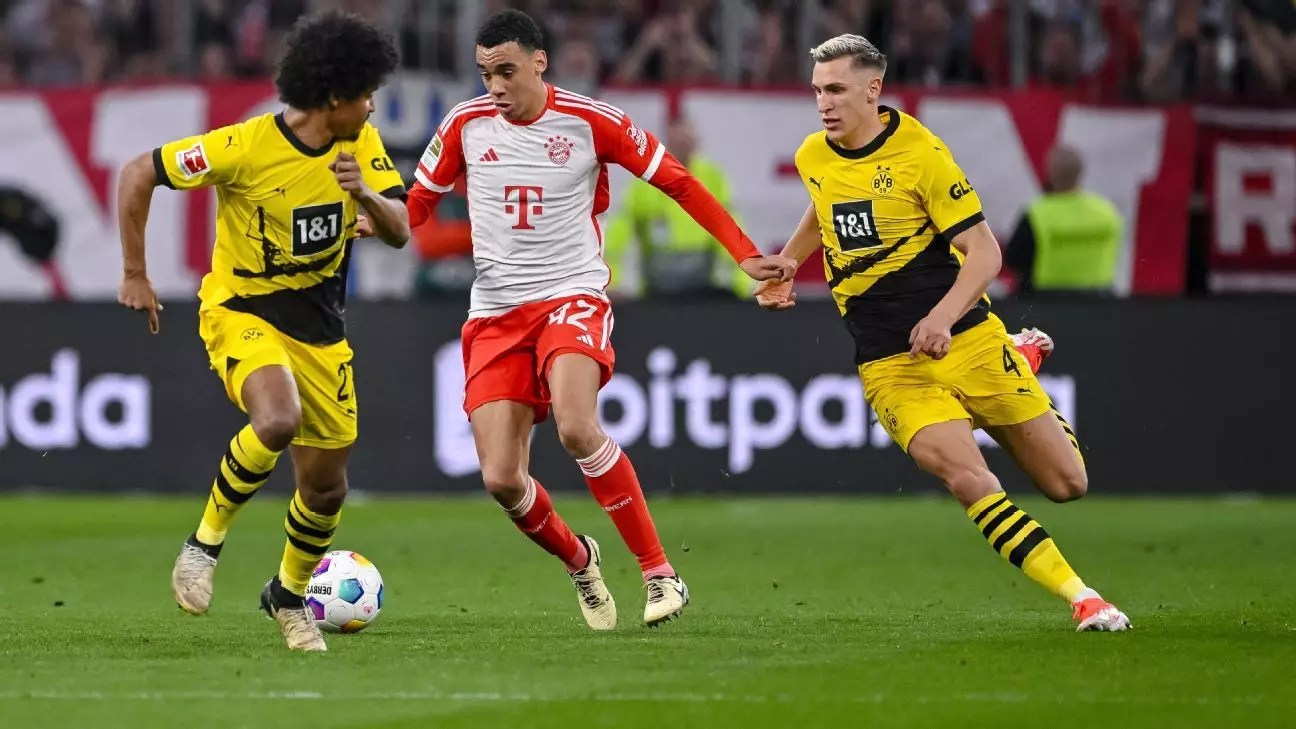The rivalry between Borussia Dortmund and Bayern Munich, often labeled as “Der Klassiker,” represents a fascinating intersection in German football, characterized by its historical context, passionate supporters, and the shifting dynamics that have defined their encounters over the decades. This article explores the unique aspects of this rivalry, delving deeper into both teams’ influence on German football and explaining why this matchup resonates so profoundly across various audiences—both local and global.
One of the striking differences between German football and that of other prominent leagues, such as La Liga in Spain, is the broad spectrum of club support across the nation. While fans of FC Barcelona and Real Madrid might dominate the media landscape in Spain, German football thrives on regional pride and diverse representation in its fan base. This is particularly evident in cities like Stuttgart, Frankfurt, and Gelsenkirchen, where support for local clubs remains strong, overshadowing even the colossal Dortmund-Bayern rivalry.
Bayern Munich, the Rekordmeister, historically commands a global presence, but it does not eclipse the importance of local derbies or rivalries that occur across the country. Fans often prioritize their local clubs, leaving the grandeur of “Der Klassiker” to hold significance primarily outside Germany. This reality casts a shadow on the over-commercialization of the fixture and raises questions about how it can be perceived by the global audience.
The moniker “Der Klassiker” is relatively recent, gaining traction among global football aficionados as German football sought to promote its marquee matchups. Yet, many traditional fans view this labeling as a marketing ploy that undermines the rich history and rivalry that has characterized encounters between Borussia Dortmund and Bayern Munich for decades. The seeds of this intense rivalry were sown in the mid-1990s when Dortmund’s rise under coach Ottmar Hitzfeld culminated in consecutive league titles and a UEFA Champions League trophy in 1997 against Bayern.
This period also marked a critical turning point. The aggression and passion that would define future matchups emerged from a game in 2001, notorious for a record-setting number of bookings and dismissals. Such physical confrontations encapsulated the fierce competition that characterized the fixture, contrasting with other German derbies like the Revierderby between Dortmund and Schalke, which often evokes a different emotional context.
The intensity of the rivalry reached unprecedented levels during Jürgen Klopp’s tenure at Dortmund. With his charismatic leadership and relentless philosophy, Klopp not only brought silverware to the club but also rekindled the competitive fire between Dortmund and Bayern. The peak of this resurgence was between 2011 and 2012 when Dortmund achieved remarkable success, including a Bundesliga title while dominating Bayern in high-stakes encounters.
Indeed, one unforgettable match from this period encapsulated the tension: a critical showdown in the 2011-12 season, where a late penalty controversy involving Arjen Robben and Roman Weidenfeller heightened emotions. This fixture showcased not only the skill of the players but the immense pressure and stakes involved in matches between these two clubs, echoing across the football community in Germany and beyond.
In recent years, the narrative of this epic rivalry has continued to evolve. Bayern Munich’s domestic dominance has been unparalleled, capturing an impressive number of league titles consecutively. However, Dortmund demonstrated resilience during the 2022-2023 season with a surprising victory in Munich, signaling a possible shift in the traditional power dynamics of this rivalry. This underdog resurgence created intrigue amongst fans and analysts, suggesting that not all fixtures will fall in favor of Bayern.
Bayern’s continuous strategic evolution has also been critical, especially under Vincent Kompany’s management, who is striving for tactical balance without sacrificing flair. Meanwhile, Dortmund’s up-and-down performances, marked by periods of brilliance and inconsistency, underscore the volatile nature of modern football.
As we look ahead, the anticipation around each Borussia Dortmund and Bayern Munich clash remains palpable. The ever-changing landscape of both clubs generates excitement about what the future holds. Will the recent trends continue, or will Bayern reclaim total dominance? While predicting the outcome of “Der Klassiker” may seem daunting, one thing remains clear: this rivalry is far more than just a match; it embodies the spirit of German football, defined by passion and countless narratives of glory.
Indeed, this is not merely about wins and losses; it’s about identity, community, and the beautiful game itself. The excitement of “Der Klassiker” captures our imagination and keeps fans enthralled, both in Germany and worldwide. Each match serves as a snapshot—a Momentaufnahme—of the evolving story of German football, making it a fixture to treasure and anticipate in the coming years.


Leave a Reply